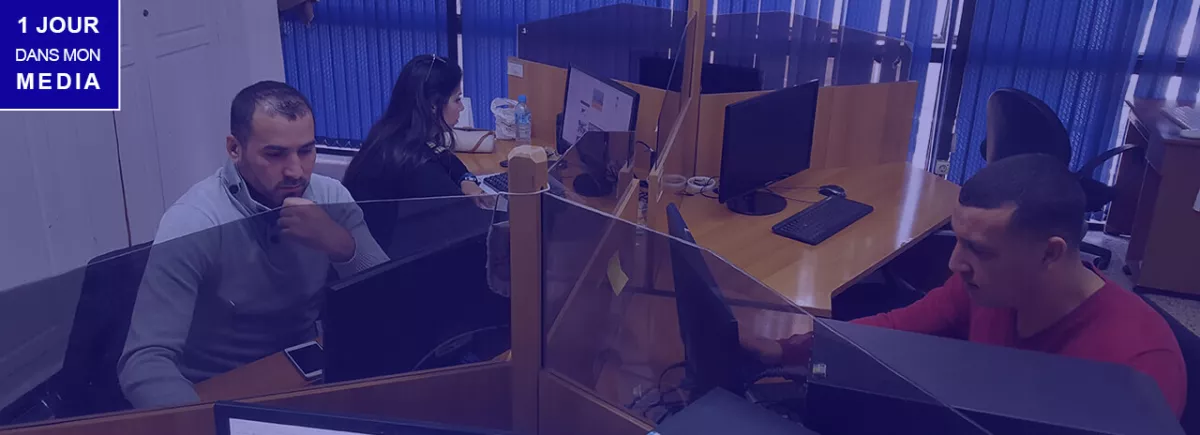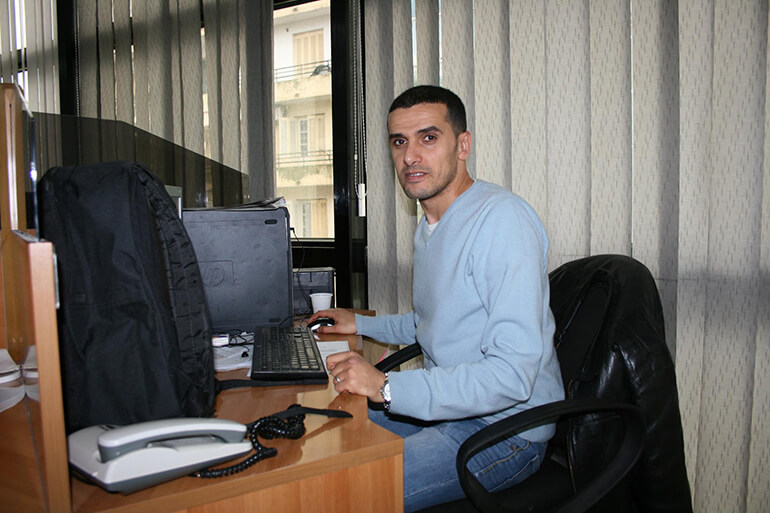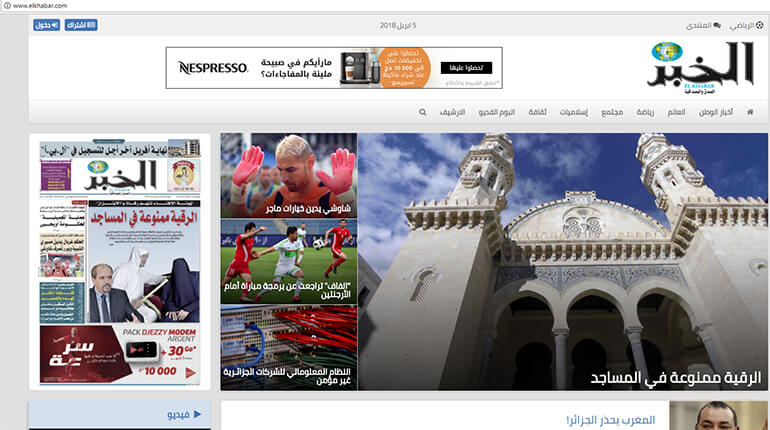
El Khabar, the Algerian daily newspaper from the very beginning
Related project
4M "Transition to online for Arabic-language newspapers""1 day in my media organisation" is a series of reports, which, each week, gives an account of the daily lives of people working in media organisations in Africa, the Arab world and South-East Asia, with the support of CFI.
This week, an interview with Farouk Ghedir from the Algerian newspaper
El Khabar.
Created in 1989 amid a time of political openness in which private media was authorised, El Khabar is one of the country's oldest newspapers. The media outlet joined forces with El Watan, a French-language Algerian newspaper, in order to purchase rotary machines. "Unlike other media outlets, we provide raw information on the basis of investigations; commentary is for the reader."They are the only private newspapers to possess their own printing equipment.
In 2006,
El Khabar achieved its highest-ever circulation of 600,000 copies.
En arabe,
El Khabar means “the news" in Arabic.
El Khabar, Algeria's Le Monde
The media outlet addresses several subjects: society, politics, sport, health, etc.
He is currently covering social protests that have taken place in Algeria.
Farouk Ghedir has worked for the newspaper since 2013. He was initially recruited as a journalist before taking up the position of head of office for social and local news. He has been chief editor since 2014.
The media outlet's paper version is primarily purchased by 40-55 year-olds, while the online version targets younger readers.

A complicated digital transition
"We have to prepare for the future, as the paper version is going to disappear. I have experienced both periods: that of the supremacy of the paper version and now that of the digital version."The newspaper's website was created ten years ago, and El Khabar embarked upon a major digital transition three years ago.
This transition has been made difficult by a lack of journalists specialised in mobile phones and the new modes of reading in Algeria. The advent of private television channels has transformed journalists' work in the country, and “they will only continue to improve", adds the chief editor.
The website takes some of the articles of the paper version of the newspaper, but the rest of the content is essentially created for it. The group's journalists are encouraged to receive training in online journalism via MOOCs, online tutorials and also ad hoc training sessions, such as that organised by CFI Médias as part of the project 4M Digital transition for Arabic daily newspapers, which El Khabar attended in 2015.
“There we learned how to write for the internet and to manage social networks", explains Farouk.
Eventually, the group plans to set up a small studio equipped with cameras, dedicated solely to multimedia for the internet. Advertisements via Google Adsense constitute the largest source of revenue for the media outlet. With the arrival of e-payment in Algeria (the law authorising it has just been adopted), the media outlet intends to implement a subscription system for the paper version. The newspaper pays for itself thanks to the sale of copies (20 dinars per copy, being 14 euro cents) and to the advertising income.
Algerian population's mistrust towards its media
Algerian journalists are faced with several obstacles: “A few years ago, the relationship between the media and the powers that be was very complicated. Yet it improved thanks to social networks, in particular. The State's approach is different because we can no longer block access to anything or hide anything", says the chief editor.
Among the population, mistrust towards the media continues to grow. “The race for scoops and the lack of work of substance from current journalists in Algeria are the reasons behind this mistrust", says Farouk, before putting things into perspective:
"It's like anywhere else, Algerians have less trust in their press bodies, particularly with the birth of so-called citizen media."

In this climate, El Khabar has nonetheless managed to preserve the credibility generated over the years by avoiding sensationalism. “People think that social networks and citizens' initiatives will make journalism disappear. Yet there will always be a need for qualified, trained and professional journalists to report the news with impartiality", he concludes.



